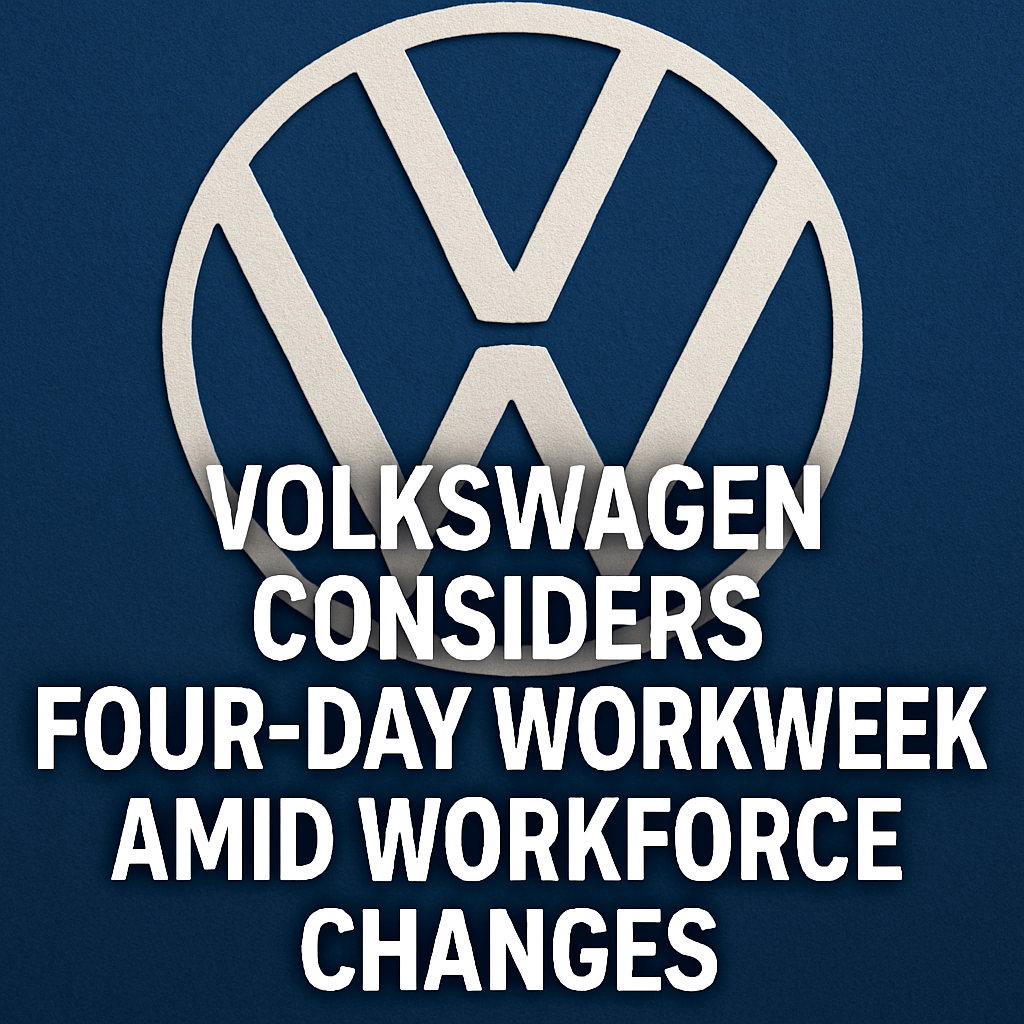Volkswagen Considers Four-Day Workweek Amid Workforce Changes

As part of a significant restructuring effort, Volkswagen (VW) announced on Tuesday that approximately 20,000 workers in Germany have opted for voluntary redundancy. This decision comes in response to intensified competition in the Chinese automotive market and the transition to electric vehicles (EVs), which has not gone as smoothly as anticipated.
Details of the Workforce Reduction
Volkswagen, Europe’s largest car manufacturer, has engaged in discussions with labor unions since last year to formulate a strategy for substantial job cuts in its home market. So far, 20,000 employees have accepted redundancy offers, marking a significant milestone in a broader plan to eliminate 35,000 positions by 2030, as outlined in the agreement with unions. This reduction translates to roughly 30% of the workforce at VW’s core brand in Germany.
- About 700,000 units of production capacity are slated for reduction.
- Other affiliated brands, such as Audi and Porsche, are also undertaking substantial workforce reductions.
The voluntary nature of these redundancies comes as a compliance measure with Germany’s stringent labor laws, which complicate large-scale layoffs. Investments are being redirected to enhance efficiency and transition towards a more sustainable business model.
Strategic Shift in Production
Volkswagen’s struggle with overinvestment in traditional vehicle lines, coupled with low returns on its EV line, necessitated a strategic overhaul. This strategic pivot has led to the following adjustments:
- Maximizing profitability by curbing costs at production facilities, particularly in VW’s German plants.
- Shifting focus towards electric mobility, aiming to bolster the brand’s market share amid growing competition.
During a recent meeting in Volkswagen’s historic headquarters at Wolfsburg, board member Gunnar Kilian conveyed optimism regarding the company’s trajectory, stating, “We are on track. The socially responsible job cuts, in addition to reductions in factory costs, signify measurable progress.” This statement reflects VW’s strategic realignment in a challenging economic environment.
Potential Four-Day Workweek
In conjunction with workforce reductions, VW is considering implementing a four-day workweek at its Wolfsburg headquarters starting in 2027. This plan is part of the broader restructuring aimed at focusing on electric vehicle production.
“We need to make provisions now to be prepared for future changes,” stated Daniela Cavallo, head of the works council.
This potential shift reflects an evolving view of work-life balance within the automotive sector. A move towards a four-day workweek could enhance employee satisfaction and productivity, aligning with global trends that advocate for flexible work arrangements.
Market Context and Future Outlook
The automotive industry is undergoing a transformative period characterized by the rise of electric vehicles and sustainability mandates. In China, VW is facing fierce competition from local EV manufacturers, while consumer preferences are shifting towards more environmentally friendly vehicles. This requires not only innovation but also stringent cost management as VW makes substantial capital investments in EV technology.
As VW moves forward, the challenge will be to implement these changes without sacrificing product quality or worker morale. How effectively VW manages this transition will be critical in determining its future market position.
Conclusion
In summary, Volkswagen is navigating a complex transformation to adapt to new market realities and sustainability goals. The announced job cuts and contemplation of a four-day workweek are indicative of significant shifts within the company as it strives to remain competitive in a rapidly evolving automotive landscape.
For markets and investors, Volkswagen’s ability to balance labor efficiency with innovation may serve as a bellwether for the broader automotive sector in transitioning toward electrification.